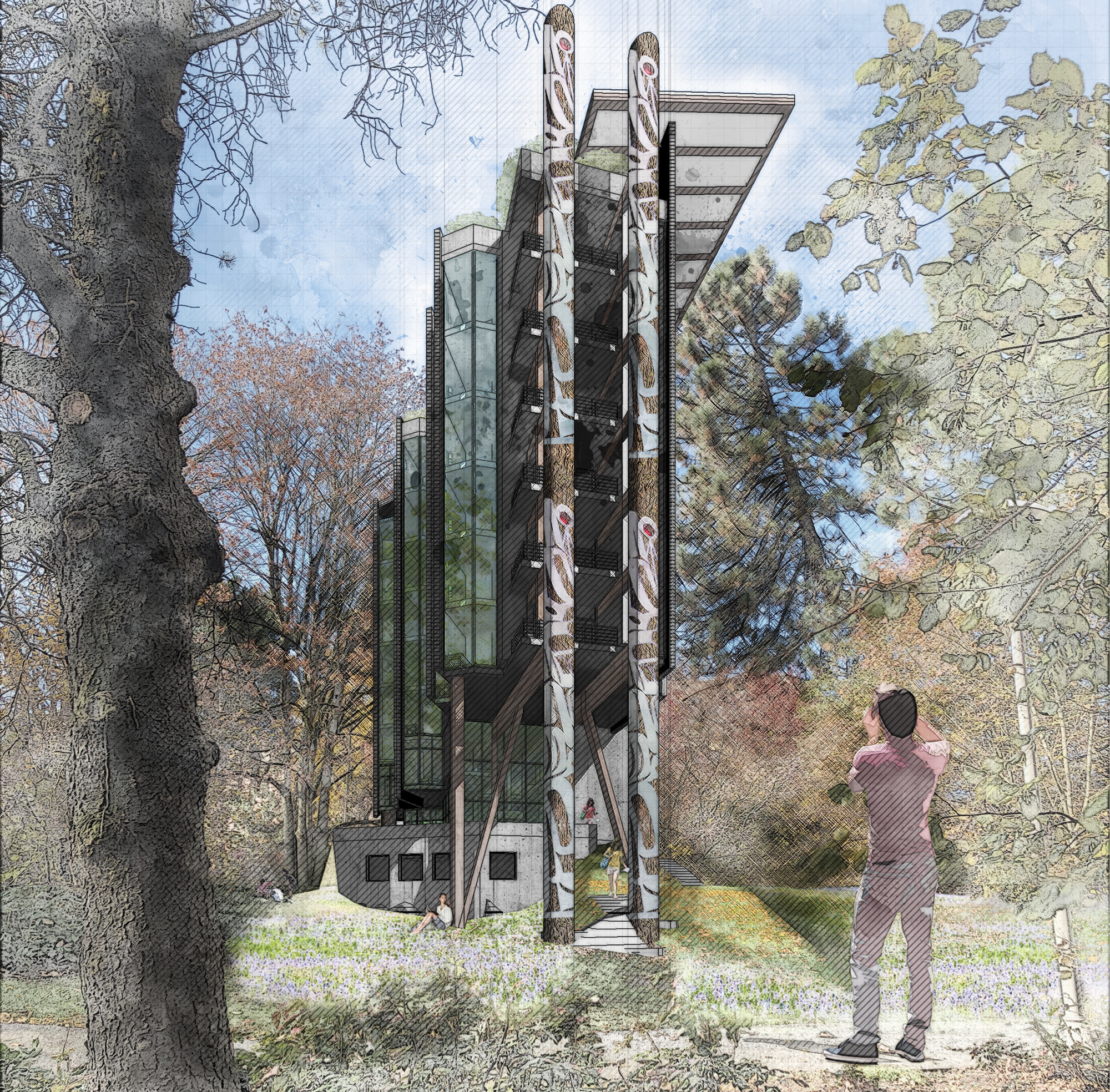
Taking Native
scholarship
to the next level
Taking Native
scholarship
to the next level
Taking Native
scholarship
to the next level
A key grant will support the Center for American Indian and Indigenous Studies as it strengthens the UW's connection with Native students and scholarship.
By Kim Eckart | May 2020 | Viewpoint Magazine
The UW Center for American Indian and Indigenous Studies, which was established in 2018, now has funding for four years of Native student support, academics, research and cultural programs. The Andrew W. Mellon Foundation granted $1.8 million to the center last fall to support both students and research.
“We spent the first year planning the center from the ground up, meeting with Native faculty, students, staff and community research partners across the UW campuses,” says co-director Jean Dennison (Osage Nation), an associate professor of American Indian Studies. “We envisioned creating strong communities where we can support and learn from each other. This Mellon grant will go a long way in helping us reengineer the University to meet these needs.”
The New York-based Mellon Foundation, which supports the humanities in higher education and the arts, awarded the grant in recognition of UW’s potential to be a leader among universities in the growing field of Indigenous Studies.
The center brings together faculty and students in American Indian and Indigenous studies, an interdisciplinary field of research that traverses the social sciences, arts and humanities, education and natural sciences. Nearly a dozen units, including the Provost’s Office, the Graduate School, UW Libraries, UW Tacoma and UW Bothell, contributed to the initial funding of the center and related activities, a total of more than $1 million over five years. The center has a deans’ advisory board as well as an overall advisory board of Native undergraduate and graduate students, faculty, staff and community partners.
“Central to our goal of fostering Indigenous communities at the UW is creating a space in which Native knowledge, especially the languages, can thrive.”
Jean Dennison, associate professor of American Indian Studies
American Indian, Alaska Native and Pacific Islander students make up about 1% of undergraduates at the UW, and 0.4% of the faculty. That underrepresentation could change with an environment that supports staffing and activities focused on the Native community, says Rickey Hall, vice president for the Office of Minority Affairs & Diversity and University diversity officer.
With the new grant, the center can continue an existing seminar for graduate students—the Summer Institute on Global Indigeneities—and create five new programs for undergraduates, graduates and transfer students. This includes a Native UW Scholars Program for incoming freshmen that will partner with the wǝɫǝbʔaltxʷ – Intellectual House to host a one-week residential experience in the summer, an orientation program with parents, a yearlong seminar and peer mentorships.
“The Mellon grant will allow us to better leverage the UW’s existing infrastructure for connecting with Native communities; supporting Native students, staff and faculty; and producing innovative scholarship in the expanding field of Indigenous studies,” says Chadwick Allen (Chickasaw ancestry), the center’s other co-director, professor of English and associate vice provost for faculty advancement.
“Central to our goal of fostering Indigenous communities at the UW is creating a space in which Native knowledge, especially the languages, can thrive,” Dennison says.
The funding also provides for a new residency program to bring Native specialists to the UW’s campuses to teach in the Department of American Indian Studies, host regular knowledge tables, supervise research projects, offer lectures and workshops, and develop curricula. The department will also build partnerships with Indian-education programs to create pathways for Native students to attend the University and to graduate.
Tami Hohn of the Puyallup Tribe was the first resident specialist. She lectured and shared her expertise in Southern Lushootseed, a language of Coast Salish tribes including the Muckleshoot, Puyallup and Suquamish.
“The UW and our partners are now at a point where we can do more than simply reach out to communities that have been marginalized and underserved,” Allen says. “We can actually begin to transform academic space across disciplines, working to create supportive ecosystems in which Indigenous peoples and our relations can thrive.”
At top: Last fall, architects Jim Nicholls and Daniel Glenn (Apsáalooke (Crow), an expert in culturally responsible architecture, led a graduate-level studio focused on decolonization. The seminar connected students with members of the Native American community to design Native student housing and community space on campus. Second-year graduate student Steven Moehring, who designed the concept on the left, said: “The architecture is meant to act as a way for Indigenous values to re-manifest themselves as a strong and tangible reclamation of the site.”